
The Business of Fashion
Agenda-setting intelligence, analysis and advice for the global fashion community.

Agenda-setting intelligence, analysis and advice for the global fashion community.
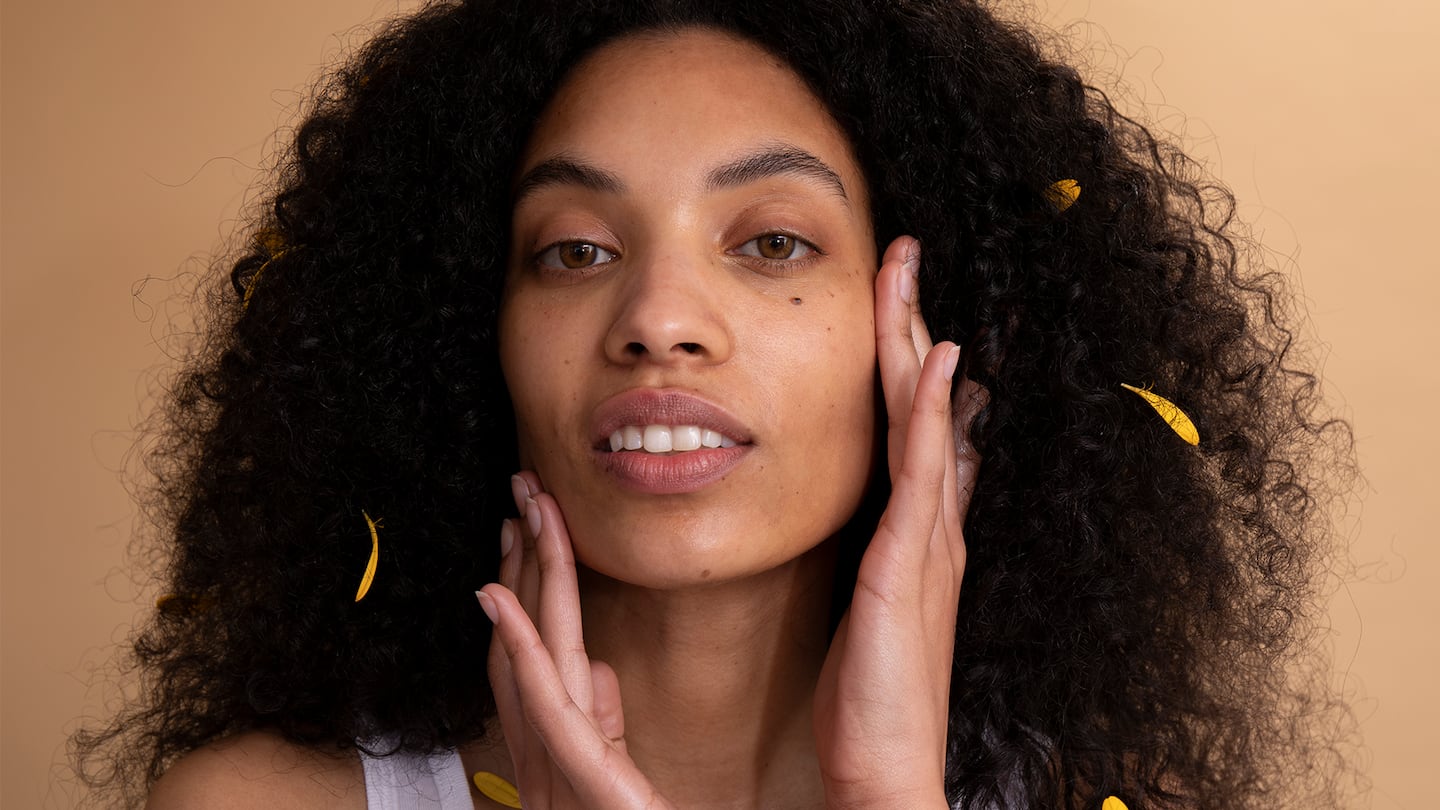
African beauty doesn’t stop with shea butter, says Linda Gieskes-Mwamba. The beauty entrepreneur who was born in the Democratic Republic of Congo and raised between Brussels and Johannesburg has always been a fan of the fat extracted from the nut of the African shea tree. Growing up in a part of Central Africa where it wasn’t abundant, she was always sure to request some from anyone coming from West Africa.
But in 2014, when she started her beauty company Suki Suki Naturals, Gieskes-Mwamba wanted to explore inherently African ingredients that weren’t yet commonly used in the beauty industry. In the last seven years, she has created a line of oils, mists, creams and masks using ingredients like mongongo oil, baobab and even shea butter, all of which can be sourced from plants on the African continent.
“What these ingredients mean to me is a celebration of our biodiversity,” says Gieskes-Mwamba.
While the use of beauty product ingredients from the continent is not new, there is new momentum building among African entrepreneurs like Gieskes-Mwamba who are redefining what the A-Beauty movement means for today’s global market by leveraging their personal connection to the continent’s raw materials and rich traditions.
ADVERTISEMENT
The term A-Beauty has been used as a catchall term to describe the African beauty industry. Though it is analogous to South Korea’s ‘K-Beauty’ in the sense that it is an abbreviation used to refer to beauty traditions that stem from a geographic location, Africa is a continent, made up of 54 diverse countries with their own unique traditions and ingredients. There are differing views on what constitutes A-Beauty, but the most consistent identifiers in recent years are African ingredients, African entrepreneurs and a truly global audience.
Heritage Ingredients in the Spotlight
“[Products] are made in Africa; we’re using predominantly African ingredients. And we try to keep the language [for marketing and branding] as African as it can be,” says Gieskes-Mwamba.
The growing interest in African ingredients among beauty enthusiasts hasn’t been lost on international companies. Mpingana Dax, founder of Kuti Oil, a Namibia-based company that sources and distributes indigenous oils for cosmetic use, says she has noticed an increase from European cosmetics companies in marula oil, derived from an African tree of the same name, and has plans to expand into the sourcing and distribution of other indigenous ingredients like Kalahari melon seed oil and manketti tree oil to the wider African and international markets.
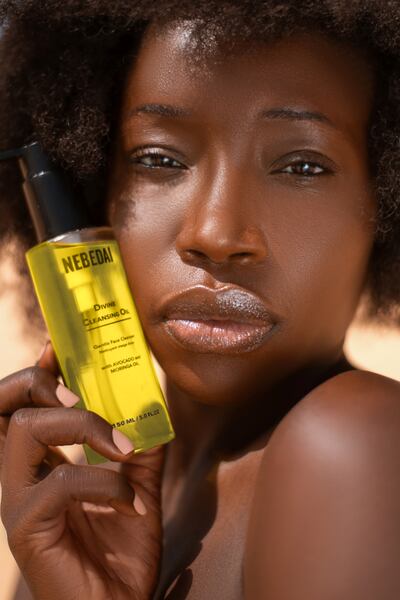
The big conglomerates have already staked a claim in more conventional ingredients like argan and shea butter that have traditionally been important exports from the continent. Last month, the Estée Lauder Companies joined the Global Shea Alliance, a non-profit organisation that aims to promote the use of shea in food and cosmetics by establishing standards, best practice and sustainability frameworks. Through L’Oréal’s Fair Trade Argan Oil programme, the company sources argan oil, which it calls a “star ingredient” in their Mythic Oil hair range, from a non-profit organisation in Morocco.
In Africa, founders of small and medium-sized beauty businesses have been making remarkable progress, says Alali Hart, founder and chief executive of beauty retailer Montaigne Place which has outlets in Lagos, Abuja and several other Nigerian cities. “Recently we see homegrown Nigerian and African brands giving the big guys a run for their money, especially as they’re more agile and adept at jumping on micro-trends and capturing the zeitgeist,” But she cautions all players to follow “the advice ‘think global, play local’.”
Still, with an eager local customer base and growing global interest, brands like Suki Suki Naturals that are produced on the continent believe that to spread the gospel of A-Beauty further, it will take a combination of investment and the support of strategic partners to overcome the many challenges that can limit smaller players from taking their place on the global stage.
One advantage local players have is that they are able to experiment with lesser-known ingredients derived from plants like nara to create formulations earlier than foreign competitors thanks to traditional knowledge. Insiders say that part of the appeal of heritage ingredients like this is that they have historical significance that goes beyond their cosmetic use.
ADVERTISEMENT
Stefanie Huemmer, co-founder of Namibian-based company Desert Hills notes that the country’s Topnaar people have been harvesting the thorny melons, which grow on the bank of the Kuiseb River, as a food source for thousands of years. In 2010, the Namibian native and her husband decided to branch into cosmetics and have since produced a line of cosmetics using nara oil.
Brand Narratives with History and Culture
Akosua Acheaw, founder of the African Beauty Collective, a website that retails and reviews African beauty products and trends, says that it is the personal relationship to African heritage ingredients that sets authentic A-Beauty entrepreneurs apart. “A few elements have converged over time to make A-Beauty the next big thing,” says Acheaw. “But I really feel that the core of it comes from the African consumer’s self-awareness of their own value.”
A few elements have converged over time to make A-beauty the next big thing.
The ability to trace the history of such ingredients and understand their versatility as cosmetics and as a source of nourishment is something Acheaw says gives consumers a sense of confidence when purchasing some A-Beauty products. Another is that many are made with ingredients that are marketed as organic, something that is of increasing interest to consumers according to Euromonitor’s 2019 International Beauty Survey.
Since a natural ingredient formulation is another trait consumers see as something that makes a beauty product “premium,” Acheaw advises A-Beauty brands to focus on naturalness and promote the versatility of African heritage ingredients into the brand story. In the same way that brands from countries in Asia have been able to popularise the use of rice water for purported hair growth, for example, brands from African countries should be marketing natural ingredients that originate from the continent. “We should be able to own the properties of what cocoa can do for your body and your hair,” she says.
Christina Tegbe, founder of botanical skincare brand 54 Thrones, goes even further by inviting clients to see or experience things like the connection between the traditional ways the ingredients are harvested to the way the final products are made before they are sold to the consumer. “We’ve kind of taken it upon ourselves to go beyond clean [beauty],” says Tegbe. “We know who makes our products. I know many of the people first-hand who grow our ingredients. But beyond that, we also attribute where our ingredients come from in terms of the [traditional] rituals, the practice.”
Tegbe says her brand’s ability to maintain an authentic story around the African-ness of her products is something consumers connect with. “There’s a cool story behind each of our products. And we’re going to do something different, like name our products these bold African names. And we’re going to honour the actual rituals. You need to see things from a different lens, not just this westernised lens.”
While the use of African beauty ingredients is predominant in the skincare and haircare categories, makeup brands like Kenya’s Suzie Beauty and Nigeria’s House of Tara, which are produced and sold on the continent have been interpreted by some as A-Beauty and continue to benefit from consumers’ growing interest in buying locally produced brands that meet their needs.
ADVERTISEMENT
You need to see things from a different lens, not just this westernised lens.
In 2010, Gieskes-Mwamba decided to grow out her chemically treated hair and go natural. While her early experiences revolved around growing up in a Francophone country where western beauty products were abundant, she turned to tips passed on from her grandmother to her mother, like using banana peels that are said to produce an antioxidant-rich hair rinse.
Taryn Gill, the founder of the South African-based hair brand, The Perfect Hair, notes that Black women, for example, who are an integral part of the A-Beauty consumer base, are more likely to connect with a brand that understands the importance of kinky or natural hair. “I always say, I’m not selling hair products. We sell a woman the promise of self-love, the promise to love your hair, which is such a huge part of your identity.”
Access to Global Markets
It’s all about moringa for Safi Tshinsele-van Bellingen. The entrepreneur produces her skincare line, Nebedai from Senegal using virgin moringa oil, derived from the tree of the same name which can be found in Africa, South Asia and other regions. But she didn’t encounter the so-called “super plant,” which is popularly used to produce a nutritious powder until she moved to Senegal where she says she used it to reduce scarring and became a convert. “I was amazed that a plant so powerful wasn’t [more] well known,” says Tshinsele-van Bellingen.
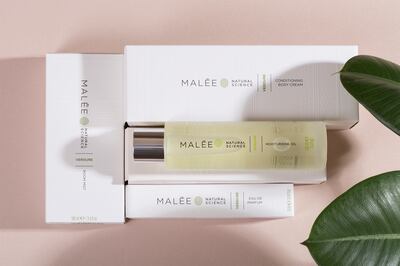
In 2019, the estimated value of the African beauty and personal care retail market was more than $10 billion, according to data provided by Euromonitor International. Though A-Beauty brands are unable to capture the entirety of this market since they compete with international brands eager to sell to African consumers, they are also able to export beyond the continent to a global market.
A report from India’s Agricultural and Processed Food Products Export Development Authority, indicates that market demand for moringa in North America should surpass $5 billion by 2025 due to a growing demand for plant-based supplements and natural cosmetic products.
In 2018, Tshinsele-van Bellingen launched Nebedai with a multipurpose face oil using the properties of moringa called Glow Divin and has expanded her product line to include a cleansing oil and a spot treatment. The next frontier is to use hibiscus, but as the brand grows, she is tasked with finding a foolproof way to get her products from Senegal to her consumers who span the United States, Belgium and the United Kingdom.
Currently, she ships her products in bulk from Senegal to a third-party company in the UK who then distributes to Nebedai customers in the UK, US and the rest of Europe. But since the UK left the European Union at the end of 2020, Tshinsele-van Bellingen says that customers in other parts of Europe are now being charged additional import taxes. Her plan now is to find separate local partners for the EU, the UK and the US.
Like they do for African fashion, boutique e-commerce sites can also provide an opportunity for A-Beauty brands to reach international consumers. Gieskes-Mwamba’s brand Suki Suki Naturals is already stocked by US-based sites, The Folklore and Blk+Grn, and the UK-based site Hamalie. The latter also stocks brands like Arami Essentials from Nigeria and Nokware from Ghana. Theresa Olloh who started the site officially in 2019, says that as A-Beauty brands become more easily accessible to consumers, they will be more inclined to explore beyond the mainstay products that have, for so long, defined the space.
“I noticed that when people think about African beauty, they mostly think about black soap and shea butter,” says Olloh. “And I’m at the point where I [say] there’s more to it. Try this product.”
In 2010, when Zeze Oriaikhi-Sao started her luxury bath and body care line in South Africa, it wasn’t about a signature heritage ingredient, Oriaikhi-Sao was more interested in capturing the unique African experience through her scents. Over a decade later, Malée Natural Science is a pioneering brand in the A-Beauty space which counts Harvey Nichols, Birchbox and South African Airways as retail partners. Oriaikhi-Sao says the initial challenges A-Beauty brands face differ, but for her, it was trying to build a global A-Beauty brand without a clear blueprint for how to do it.
I was amazed that a plant so powerful wasn’t [more] well known.
“I would say some of the biggest barriers I’ve faced have been moving too fast [and] being maybe a bit ahead of the curve in a way,” says Oriaikhi-Sao. “So it’s having the steam to continue to sustain [it] for when it comes around. Building the business based on my strengths has kept me in good stead to still be around 11 years later.”
Oriaikhi-Sao carved out space as an eco-luxury brand born in Africa for the global consumer, after partnering with luxury hotels on the continent where the brand was offered to guests before opening a store in Johannesburg’s Hyde Park Mall in 2012. The following year, she moved to the UK with her family. “I think there are retailers out there who want to bring newness to their customer base,” says Oriaikhi-Sao.
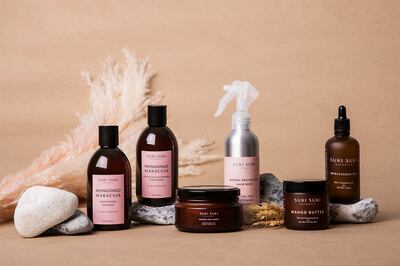
Funmi Scott, the founder of Untapped Creatives, a company that represents Black-owned British luxury lifestyle brands, agrees but notes that the existing structure for buyers to find these brands is difficult and revolves around a community where Black and African brands haven’t historically been represented. Partnerships like Untapped Creatives say they are helping to bridge the gap.
So far, Scott says Untapped Creatives has 20 brands on their roster and has been able to secure an opportunity for a number of them to showcase their products at Selfridges. “We have the capability to navigate and work with the big buying teams [at major retailers] on behalf of our small independent brands that may not have resources to commit such an endeavour,” says Scott.
A-Beauty’s Economic Impact
A-Beauty entrepreneurs say that one defining characteristic of their sector is its inherent communal focus. While ingredients and beauty rituals might differ across regions and countries, the sector’s continued growth will create more economic opportunities for their countries and ultimately the wider continent.
“One thing that I can say about A-Beauty is that it’s all about the unit,” says Tegbe. “It’s about family, from planning and farming, it’s all done together.”
Hassan El Allali, manager of Fatima’s Garden, a Moroccan company that produces and sells argan oil, says that one of the Agadir-based company’s goals is to encourage uptake in the cooperative model for producing and selling argan oil. In February of last year, the BBC reported that as argan’s popularity grows worldwide, some women tasked with harvesting the seeds and extracting the oil earn below Morocco’s recommended national minimum wage.
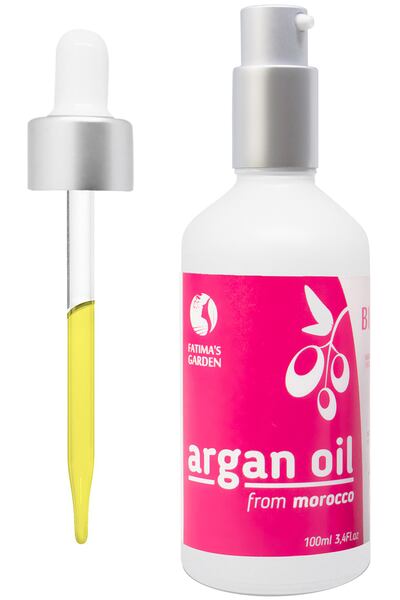
El Allali says that this is driven by some companies partnering with grey and black-market businesses that exploit the women doing the work and refuse to pay them fairly. “We are from the region and these communities are dear to us,” says El Allali. “So what we do is shine a light on the [cooperative] model, show the way it should be done, and we market it. And it becomes a competitive advantage and it almost forces the competition to do it this way as well.”
Despite the efforts of some A-Beauty entrepreneurs to operate sustainably and others to position their brand as such, there is often no way of telling which follow ethical production models due to opaque supply chains across the industry and a dearth of regulation in many source countries on the continent. But with demand for popular African heritage ingredients like shea and argan predicted to grow further in the coming years and multinational companies feeling consumer pressure to operate more responsibly when procuring these materials, A-Beauty entrepreneurs remain hopeful.
Meanwhile, as the hunt for ever-newer and rarer ingredients continues to grow, Gieskes-Mwamba says that it’s only a matter of time before global consumers take notice of what else the continent has to offer. With the right investment, management and access to markets, A-Beauty businesses can boom.
“We just have to say ‘hey, this is what we have. And this is how good it is.’ And I think the rest really happens by itself,” said Gieskes-Mwamba.
Related Articles:
How to Crack Nigeria’s $1.2 Billion Beauty Market
This week’s round-up of global markets fashion business news also features Korean shopping app Ably, Kenya’s second-hand clothing trade and the EU’s bid to curb forced labour in Chinese cotton.
From Viviano Sue to Soshi Otsuki, a new generation of Tokyo-based designers are preparing to make their international breakthrough.
This week’s round-up of global markets fashion business news also features Latin American mall giants, Nigerian craft entrepreneurs and the mixed picture of China’s luxury market.
Resourceful leaders are turning to creative contingency plans in the face of a national energy crisis, crumbling infrastructure, economic stagnation and social unrest.